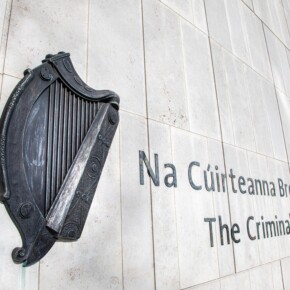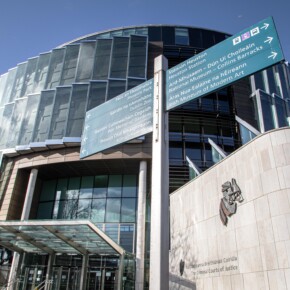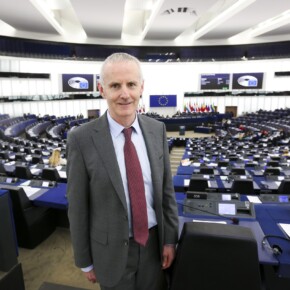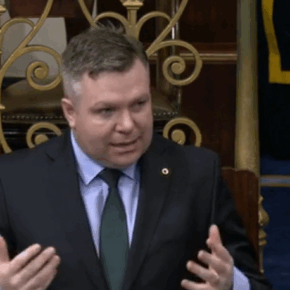Title fight to take place in Dún Laoghaire on June 7th
Mike Finnerty 29 May 2024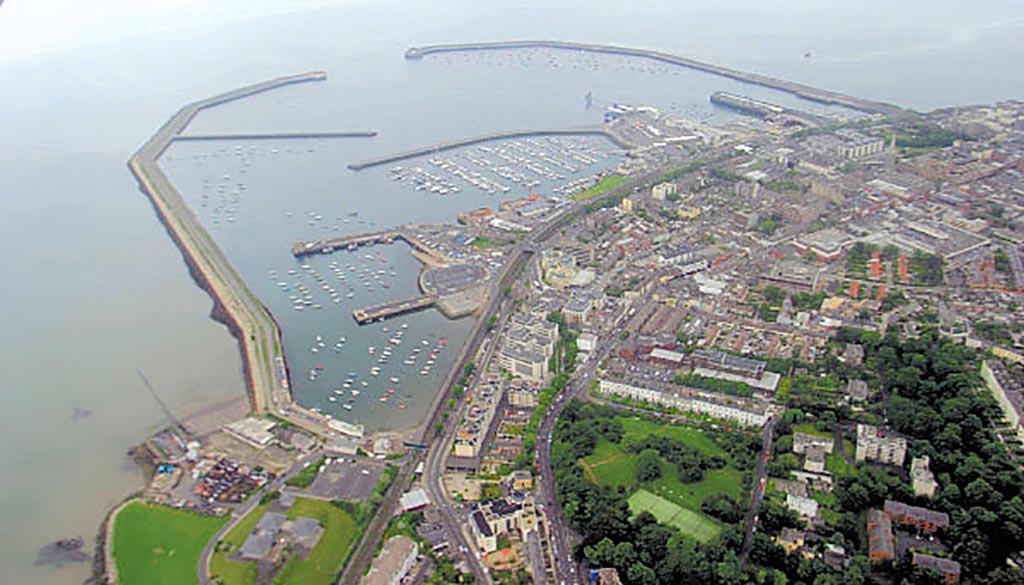
In every election, one constituency manages to become a national news story thanks to a high-profile candidate or a major controversy surrounding a party.
Dún Laoghaire has drawn the short straw this year.
We usually give a brief overview of the current state of the constituency before analysing what parties have the best chance of winning but it is more pertinent to remind people of what has been going on in the constituency in recent weeks.
The local election race became a national news story in early May after the Social Democrats dropped their candidate, Orli Degani.
Degani, a German citizen with Israeli citizenship, was dropped by the party following an internal review.
It has been reported that Degani objected to the use of the Palestine flag being used at party events.
The party has since opted to run law student Hugo Mills instead of Degani, while Degani herself will run as an independent.
The Soc Dems did win here in 2019, with Dave Quinn securing election despite scooping 4.5% of first preferences (the miracles of PR-STV, never let anyone tell you the system doesn’t work!) but only time will tell if the decision to drop Degani was a mere footnote or something that ended up costing them the seat.
That high-profile row is enough to make this one of the most controversial constituencies in Ireland, but there is also the small case of Labour’s candidate.
In late April, news broke that current councillor Julliet O’Connell, who briefly served as the party’s spokesperson on small business, was discovered to have underpaid a Bolivian immigrant at her business.
O’Connell was told to pay her employee €11,000 in unpaid wages by the Workplace Relations Commission, and O’Connell was promptly dropped by the party.
While current polling indicates Labour are polling roughly where they were in 2019, the party could scarcely afford a slip-up.
For Labour of all parties to be hit with a scandal about one of their councillors underpaying an immigrant worker is a sign that the 2024 locals are some weird Twilight Zone episode.
Thomas Joseph has been chosen to run for Labour, but the damage may be too deep.
Labour have a hit-and-miss history in Dún Laoghaire; 2009 saw them get two candidates elected, while 2014 saw them fail to get any of their three candidates elected.
2019 represented something of a comeback for them, but surely the party are now hoping voters are voting on party lines next month.
With two left-liberal parties on the ballot overshadowed by controversy, it remains to be seen who benefits.
In 2019, Ossain Smyth was elected on the first count with 20.1% of first preferences (along with Fianna Fáil’s Cormac Devlin) which should give you a hint of where Dún Laoghaire as a whole leans politically.
Tom Kivlehan, who was co-opted following Smyth’s Dáil victory in 2019, appears to be well-placed to secure re-election owing to the 7-seater nature of the constituency, and the scandals affecting other progressive parties will likely result in voters plumping for the councillor they’ve known since 2020.
Devlin was elected to the Dáil in 2020, which leaves Justin Moylan and Colette O’Sullivan running in his place.
Devlin was a vote-winning machine ever since his first election in 2004, so June will tell how Fianna Fáil will cope with his absence.
Fine Gael came close to getting three of their candidates elected in 2019 and will look to finish what they started next month.
Incumbents Mary Faye and Lorraine Hall are headlining the ballot for the party, while community garda J.P. Durkan will round out the trio.
The Irish Times’ recent local election poll (which, it should be stated, should be taken with a health warning) has indicated Fine Gael are enjoying a new leader bounce under Simon Harris.
If the party could get three candidates elected here it would be a sure sign the Fine Gael message is still connecting with people despite their 13-year stint in power.
Regardless of how Sinn Féin performs next month, it will surely be better than their 2019 performance.
Sinn Féin’s candidate in 2019 finished dead last, with more spoilt ballots cast than Sinn Féin received first preferences.
Even after three rounds of transfers, Sinn Féin still finished 23 votes behind spoilt ballots.
Dún Laoghaire isn’t typically considered a Sinn Féin target area for reasons we have outlined (voters either favour government parties or as we will get to later, the left-wing) so Sinn Féin might find itself caught in the middle.
Sinn Féin has positioned itself as a new answer to Fine Gael and Fianna Fáil, but maintains they still have enough leftist bona-fides to appeal to the likes of People Before Profit voters.
In any case, Shane O’Brien will be on the ballot for the party and as stated, the only way is up as far as Sinn Féin are concerned.
Sinn Féin’s biggest rivals are without question, People Before Profit.
Mellisa Halpin has been on Dún Laoghaire-Rathdown Council after being co-opted in early 2011.
Halpin was co-opted following the election of Richard Boyd Barrett to the Dáil, making her tough to dislodge.
Halpin has won two elections in her own right (despite a marathon election on the 14th count in 2014 and needing to go 9 counts before winning in 2019) but voters on the left edge of the political spectrum are more likely to go to Halpin before they go to Sinn Féin.
Aontú will be running Mairead Tóibín in June, sister of party leader Peádar.
As we stated a few weeks ago, Dún Laoghaire is one of the most socially liberal constituencies in Ireland.
March’s twin referendums on family and care were roundly rejected across Ireland, but Dún Laoghaire bucked the trend.
While both referendums were roundly rejected by the Irish electorate at large, Dún Laoghaire was notably the only constituency in all of Ireland to vote yes on the family referendum and had the highest yes vote on the care referendum at 42.2%.
In 2018, 77% of voters in Dún Laoghaire voted to repeal the 8th Amendment and going back to 2015, 71.6% of voters voted to allow same-sex marriage.
Why Aontú and their social conservative message felt the need to run here is a riddle for the ages.
They may be going for a Nixon-style “silent majority” approach and hoping that there is a socially conservative cohort waiting for them at the ballot box but we will save them the time now; there isn’t.


